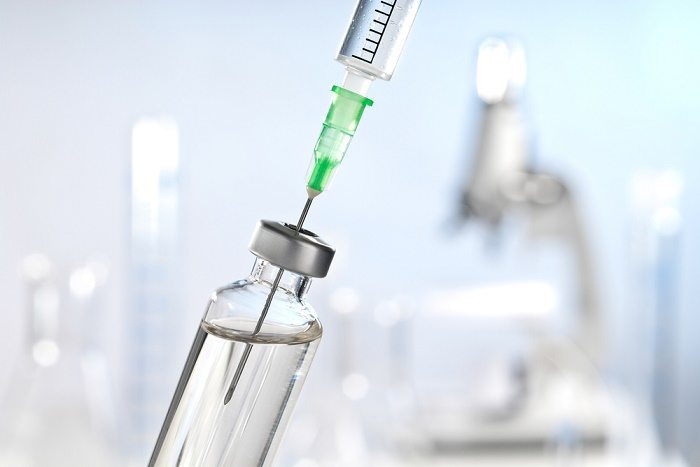Yet Another Study Shows HPV Vaccine Does Not Cause Promiscuity
A study this week adds to the large body of research that shows teens who have received the HPV vaccine are no more likely to engage in sexual activity or suffer consequences such as unintended pregnancy or STIs than their un-vaccinated peers.

The fear that vaccinating girls and boys against a sexually transmitted infection as young as 11 will increase promiscuity is thought to be a central reason that HPV vaccination rates are lower than that of other recommended vaccines. Research continues to show this worry is unfounded.
A new study published in the Canadian Medical Association Journal is the latest addition to a large of body of research that shows teens who have received the HPV vaccine are no more likely to engage in sexual activity or suffer adverse consequences than their un-vaccinated peers.
The researchers based their findings on outcomes of sexual activity, such as pregnancy or diagnosis with a sexually transmitted infection (STI). They used health databases in Ontario to examine the records of more than 260,000 girls, some of whom had gotten the vaccine and some who had not. As of 2007, all Ontario eighth-grade girls are eligible to receive the vaccine but only about half get all three doses.
The records revealed more than 10,000 pregnancies and 6,000 STIs by the time the girls had reached 10th-12th grade. Researchers, using an analysis technique known as regression discontinuity, found no evidence that vaccination increased the risk of these outcomes.
The authors concluded, “These results suggest that concerns over increased promiscuity following HPV vaccination are unwarranted and should not deter from vaccinating at a young age.”
As Rewire has reported for a few years, many studies have had similar findings. One of the most recent studies, published this year in Pediatrics, examined the perceptions of young people who had received the vaccine to determine if they were less motivated to practice safer sex. Participants were also asked about their sexual behavior. Both the attitude and behavior surveys were given right after they received the vaccine and repeated two months and then six months later.
The findings showed that the vaccine did not change attitudes about sexual behavior, nor did it encourage unsafe sexual practices. Among those who were sexually active when they got the vaccine, 61 percent said they had used a condom the last time they had sex during the two-month survey, and 62 percent said so during the six-month survey.
A study by the Centers for Disease Control and Prevention (CDC) found that having received the HPV vaccine is not associated with whether a woman is sexually active or with the number of partners she has had. That study, published in 2012, also found that among people 15 to 19, those who had received the HPV vaccine were more likely to always use condoms than those who had not.
Another 2012 study used methodology similar to the Canadian study. It followed 1,400 girls in Atlanta for three years after their vaccination and compared them to girls who had received other vaccinations, but not the one for HPV. This research looked at markers for sexual behavior such as being given a pregnancy test, requesting contraceptive counseling, or receiving an STI diagnoses.
Again, there were no differences between the girls in the study who had received the HPV vaccine and the girls who had not received the vaccine.
HPV is a highly contagious STI. The CDC estimates that 79 million people in the United States are infected with HPV and 14 million new infections occur annually. Though most people will suffer no long-term health consequences and may never know they have HPV, others may develop cervical cancer or cancers of the head, neck, throat, penis, or anus.
About 12,000 women develop cervical cancer in the United States each year and 4,000 die from it.
There are two HPV vaccines on the market. Gardasil was introduced in 2006 and provides protection against four common strains of the virus, including the two that account for 70 percent of cervical cancers and the two that account for 90 percent of genital warts. A second vaccine, called Cervarix, was approved in 2009 and protects against the two strains that cause most cervical cancer.
Research has shown that the vaccines are working. A 2013 study, for example, found that despite the fact that only half of teen girls had gotten one dose of the vaccine and fewer than a third had gotten the recommended three doses, the proportion of teen girls infected with the HPV strains that the vaccine addresses has dropped by 56 percent.
Despite this success, many teens are not vaccinated in the United States, possibly because of concerns about promiscuity. Canada is facing a similar problem.
Even though Canada’s government-sponsored health program offers the vaccine to eighth-grade students, many remain un-vaccinated. Leah M. Smith, the lead author of the most recent study, pointed out in an email to news outlets that some Catholic schools in Ontario were opting out of the vaccine program altogether out of fears of somehow sanctioning sexual behavior.
She said she hoped her study will put these fears to rest for good.
“Our study was almost 200 times larger than the previous study and found no evidence of an increase in risk,” Smith said. This is consistent, she added, with studies of other efforts to improve sexual health.
“Other studies have consistently shown that sexual health interventions do not increase risky sexual behavior, and some may even promote safer sexual behaviors,” she said. “This includes interventions aimed at improving condom access in schools and providing sexual health education to teens.”
